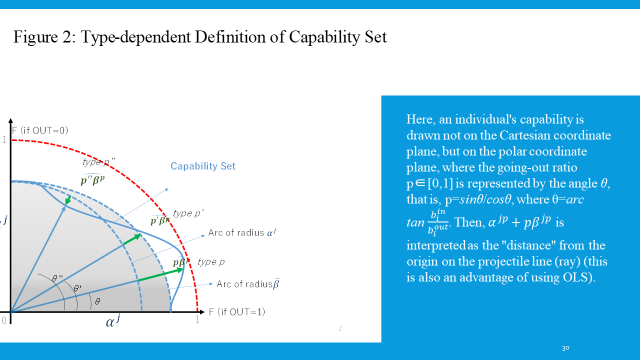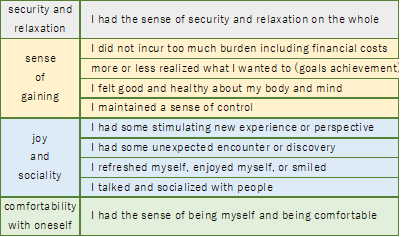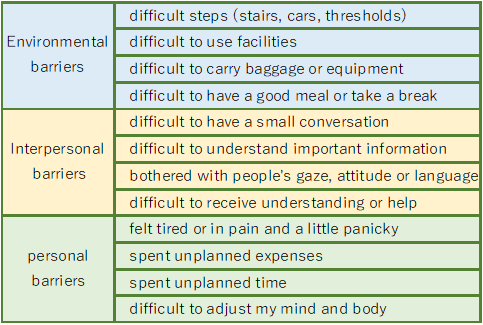Progress Report
Maximizing well-being and agency on the basis of interpersonal comparison of brain indicators[1] Specifying and updating of well-being and agency in society
Progress until FY2024
1. Outline of the project
The task of this assignment is to conceptualize a pre-theory to guide the fact-finding study (survey and experiment). Specifically, we will construct a list and hypothesis concerning welfare and subjectivity, and define the concept of "city capability" (Task 1-1). In addition, we will utilize full-text digital data from the National Diet Library to analyze data related to the concept of welfare and subjectivity (Task 1-2). This year, (1) we programmed procedures for estimating individual capability (normative axioms and statistical criteria) and applied them to consensus building on welfare and transportation policies and to surveys of visually impaired people in Japan and Bangladesh, and (2) In parallel with the work of collecting and organizing large-scale textual data, we conducted a preliminary analysis to identify the main axes of welfare and subjectivity using the geometry of culture approach and the word embedding model.
2. Outcome so far
(1) The following is an overview of the capability estimation procedure.
The observed values (achievement function points) of individuals belonging to a group j over T periods are aggregated under rules that satisfy certain evaluation criteria (inter-individual comparability and freedom/equality norms) to identify the capability of group j = the capability of an individual in a given identity.


(2) Implementation of Data Collection and Organization Regarding Concepts of Well-being and Agency:
During the fiscal year, we collected and organized large-scale text data for analysis in and after the fiscal year of 2023. For the large-scale text data, we considered the availability and the relevance to our goal of identifying the key axes of well-being and agency. As a result, we decided to use the full-text data of the National Diet Library (which includes all books published from the Meiji era to 1968, and all magazines published up to 1989 that are in the library's collection). In this fiscal year, we organized the data by the year of publication and constructed metadata (including publication year, author, genre, etc.), as well as conducted cleaning of the main text data (conversion from old Japanese character forms to modern forms, removal of English numerals, morphological analysis using MeCab, conversion to text files segmented by morphemes).

3. Future plans
(1) we continue the capability survey to understand the hidden needs of respondents who show no intention of using the public system. (2) In collaboration with neuroscience and animal psychology, we will elucidate the logic linking medical intervention and social support to enhance "capability for well-being. (3) Conduct an analysis of the National Diet Library's full-text data based on the geometric approach to culture, and examine the philosophically and normatively proposed concepts of well-being and agency in line with the actual thoughts and attitudes of people.
(GOTOH Reiko: Teikyo University
TAKIKAWA Hiroki: The University of Tokyo)